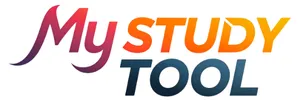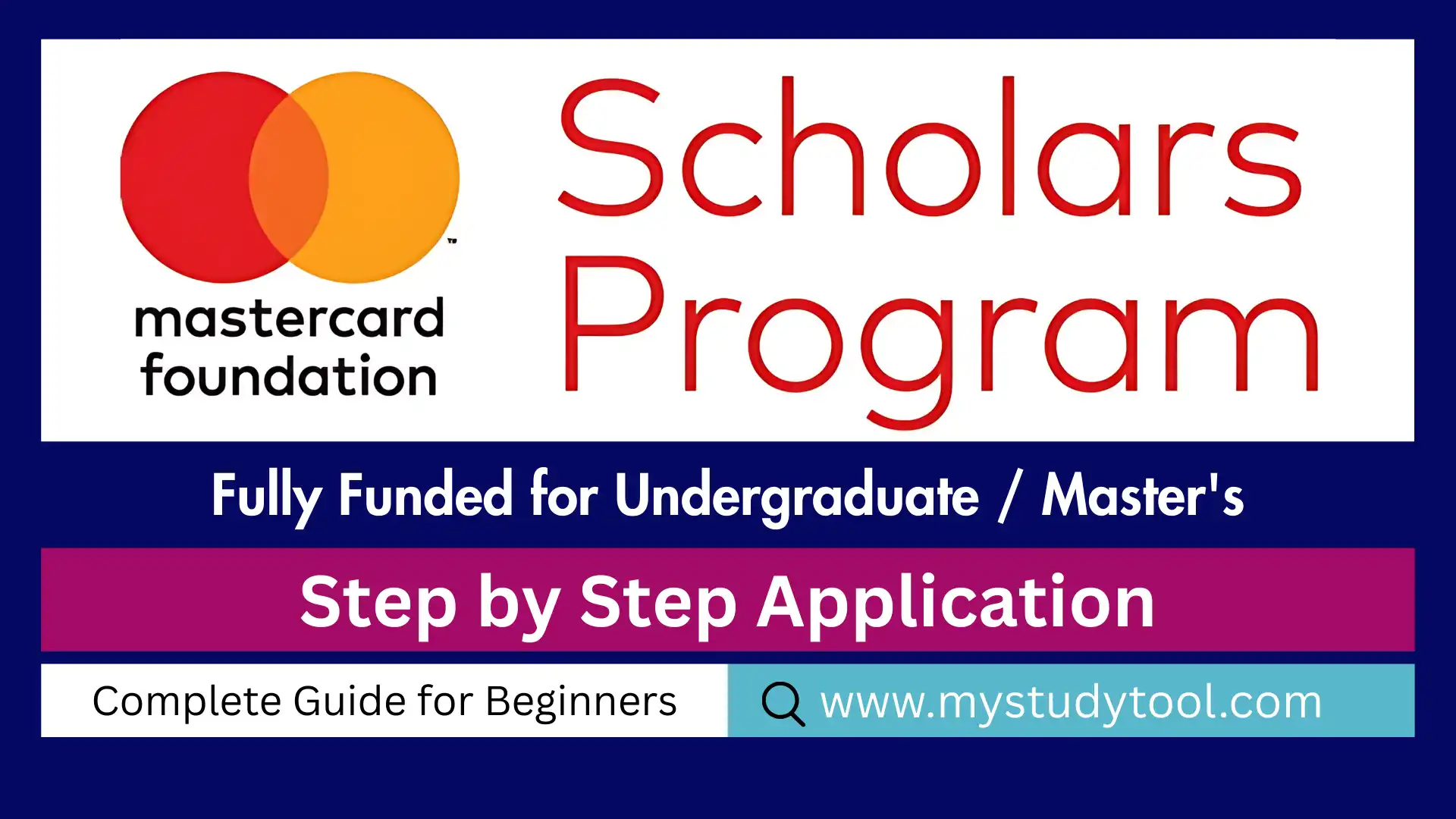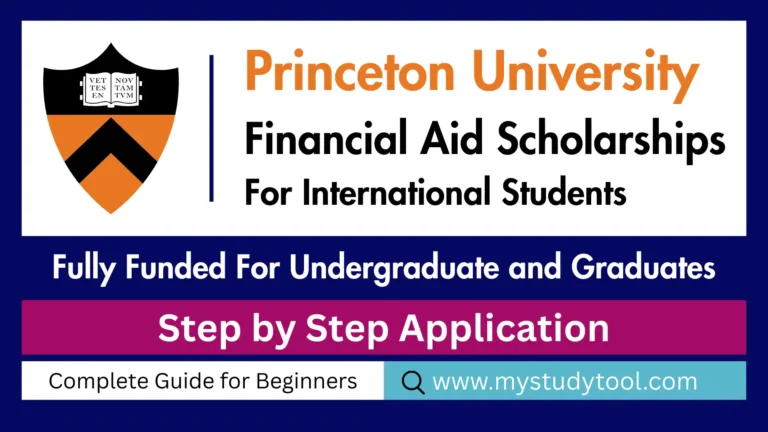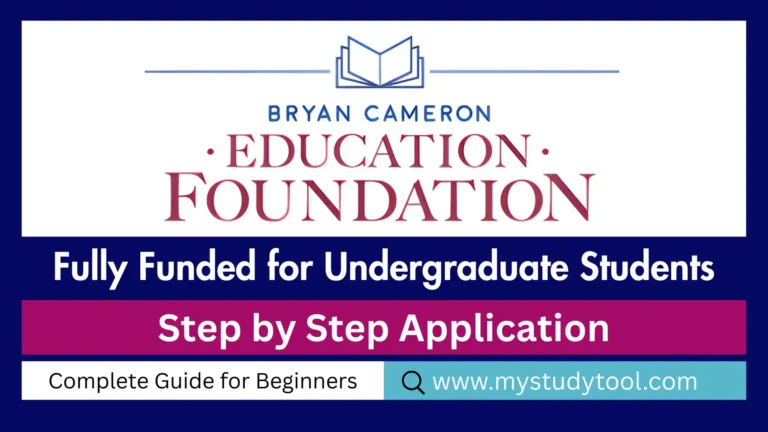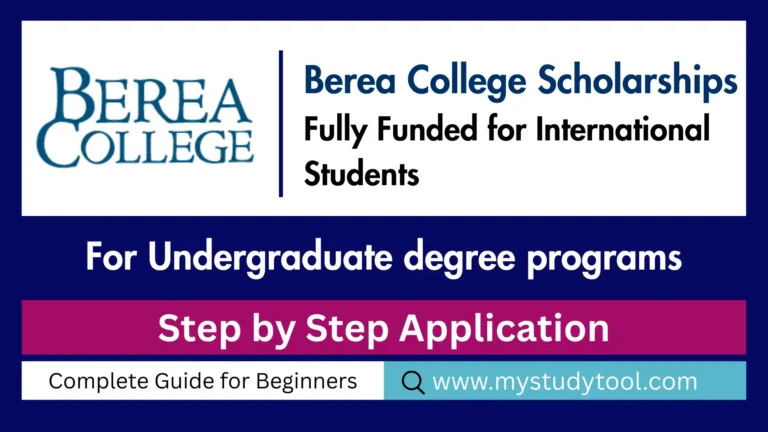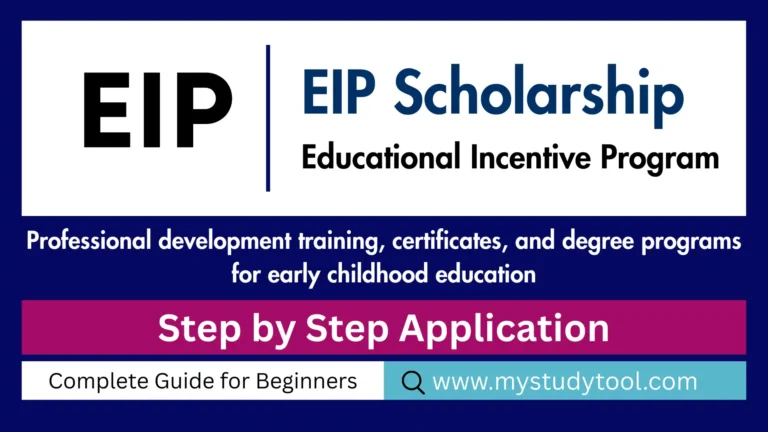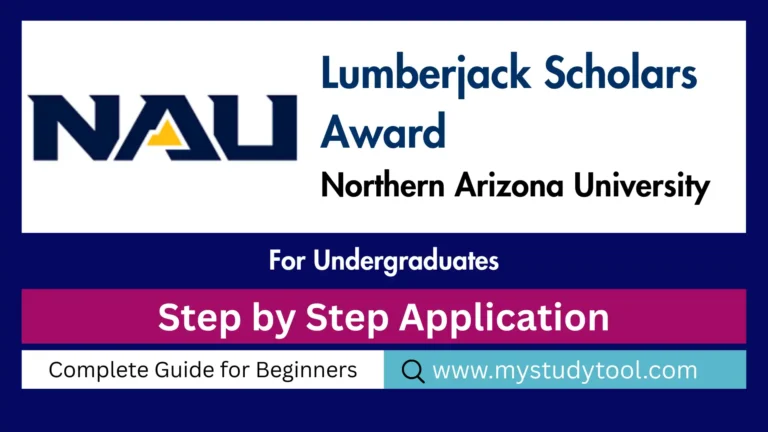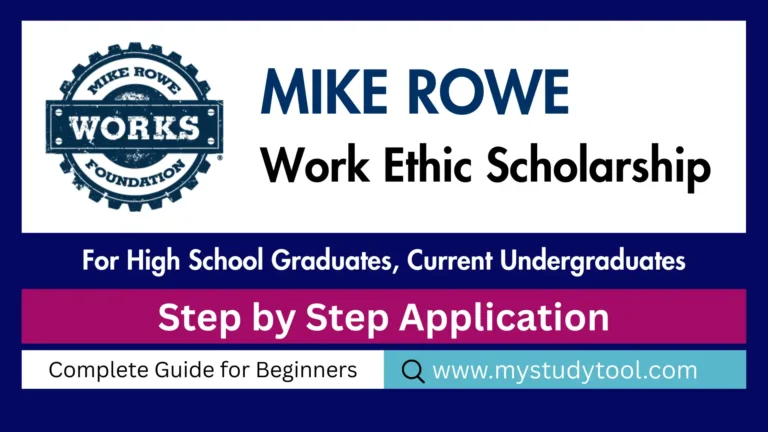So here’s the thing – if you’re an African student with big dreams but limited financial resources, the MasterCard Foundation Scholars Program 2026 might just be your golden ticket. I’ve been helping students navigate this scholarship landscape for years, and honestly, this program stands out as one of the most transformative opportunities available today.
The MasterCard Foundation Scholarship isn’t just another scholarship. It’s a comprehensive leadership development initiative that’s been changing lives since its inception. The program is developing Africa’s next generation of leaders by using education as the catalyst for social and economic change. What makes this different? Well, actually, let me clarify – it’s not just about paying for your education. It’s about investing in your potential to transform Africa.
Let me share what I’ve observed after working with hundreds of scholarship applicants. The MasterCard Foundation doesn’t just throw money at students and hope for the best. They’re looking for future change-makers, people who’ll return to their communities and make a real difference. That’s why they’ve partnered with top universities across Africa, North America, and beyond.
Also read: Chevening Scholarships 2025 | Fully Funded for Master’s
MasterCard Foundation Scholarship Overview
Here are the key facts you need to know right off the bat:
- Academic Level: Undergraduate and graduate programs (bachelor’s, master’s, and select doctoral programs)
- Host Institution: Multiple partner universities, including McGill University, University of Cape Town, Arizona State University, UC Berkeley, Carnegie Mellon University Africa, University of Pretoria, American University of Beirut, and more
- Country: Various locations across Africa, North America, and other regions, depending on partner institution
- Target Recipients: Academically talented but economically disadvantaged African students
- Program Focus: Leadership development, social impact, and community transformation
- Selection Criteria: Academic excellence, leadership potential, commitment to Africa’s development
- Duration: Full degree program length with comprehensive support throughout
- Application Deadline: Varies by institution (typically August-February)
- Program Period: Depends on the selected course and degree level
- Age Limit: Maximum 26 years for undergraduate programs (varies by institution)
Also read: Commonwealth Scholarships 2026 | Fully Funded
MasterCard Foundation Scholars Program Coverage
I’ll be straight with you – this MasterCard Foundation Scholars Program package is incredibly generous. Actually, it’s more comprehensive than most students initially realize.
The scholarship covers application preparation support, orientation, tuition and fees, health insurance, travel and basic living expenses, project, and entrepreneurship support. But wait, there’s more:
- Full tuition and academic fees for your entire degree program
- Living expenses and accommodation, including monthly stipends
- Health insurance coverage ensures you’re protected throughout your studies
- Travel costs, including flights to and from your host institution
- Academic materials and a laptop to support your studies
- Leadership development programs beyond regular coursework
- Mentorship and career guidance from program alumni and professionals
- Research and internship opportunities to build practical experience
- Entrepreneurship support for students interested in starting social enterprises
- Networking opportunities with fellow scholars across the continent
Some institutions also provide a monthly stipend and meal allowance, medical aid, a laptop, study materials allowance, and holistic wrap-around support programmes.
Partner Universities and Available Programs
Here’s what I think sets this MasterCard Foundation Scholars Program apart – the variety of world-class institutions you can choose from. Let me break down some key partner universities and their focus areas:
African Partner Universities:
- University of Cape Town (South Africa) – Engineering, Business, Health Sciences
- University of the Western Cape (South Africa) – Multiple undergraduate and postgraduate programs
- University of Pretoria (South Africa) – Engineering, Natural Sciences, Humanities, Economics
- Carnegie Mellon University Africa (Rwanda) – Information Technology, Electrical Engineering
- American University of Beirut (Lebanon) – Graduate programs in various fields
North American Partners:
- McGill University (Canada) – Multiple graduate programs
- University of Toronto (Canada) – Various undergraduate and graduate programs
- UC Berkeley (USA) – Graduate programs in development studies
- Arizona State University (USA) – Multiple program options
Specific Programs Available (Example from University of Pretoria):
- Engineering: Industrial, Chemical, Civil, Computer, Electrical, Electronic, Mechanical, Mining Engineering
- Natural and Agricultural Sciences: Food Science, Agricultural Economics, Animal Science, Plant Pathology
- Humanities: Political Studies, International Studies
- Economic Sciences: Accounting, Financial Sciences, Economics, Informatics, Agribusiness Management
Also read: Yale University Scholarships 2026 (Fully Funded) for International Students.
Language Requirements and Academic Standards
This is something I wish more students paid attention to early in their preparation. Language proficiency isn’t just a checkbox – it’s crucial for your success.
English Proficiency Requirements:
- TOEFL: Typically 90+ (internet-based test)
- IELTS: Usually 6.5-7.0 overall band score
- Academic IELTS preferred over General Training
- Some institutions accept other tests like PTE or Duolingo
- Native English speakers or those educated in English may be exempt
Academic Standards:
- Undergraduate applicants: Strong high school grades (usually 80%+ or equivalent)
- Graduate applicants: Bachelor’s degree with honors or high distinction
- GPA requirements: Typically 3.0/4.0 minimum, but competitive applicants have higher
- Specific program requirements: Some programs need prerequisite courses
Eligibility Criteria for MasterCard Foundation Scholarship
Now here’s where it gets specific, and honestly, this is where I see many applicants make mistakes. Each partner institution has slightly different requirements, but there are common threads.
The basic requirements that apply across most institutions include:
- African citizenship or a strong connection to an African country
- Academic excellence with strong grades in previous studies
- English proficiency meeting host institution requirements
- Age requirements – Maximum 26 years for undergraduate programs (varies by institution)
- Leadership experience demonstrated through community involvement, volunteer work, or other activities
- Financial need – you must demonstrate that you cannot afford the education without assistance
- Commitment to Africa’s development with clear plans to contribute after graduation
- No previous degree at the same level you’re applying for
- Must first gain admission to the partner university before scholarship consideration
Prospective applicants must qualify academically for admission to their chosen university and meet the following minimum criteria: Be admissible to one of the eligible programs at your target institution. Have NEVER registered for, nor completed a degree at the same level you’re applying for.
What I’ve noticed is that the program actively supports equality, diversity, and inclusion in higher education. Women, refugees, internally displaced persons, and people with disabilities are particularly encouraged to apply.
Financial Need Assessment Process
Let’s talk about something that makes many students uncomfortable – proving financial need. I’ve helped students through this process, and honestly, it’s not as intimidating as it seems.
What They’re Looking For:
- Family income documentation showing inability to fund education
- Employment records of parents/guardians
- Bank statements demonstrating limited savings
- Property ownership details (if applicable)
- Supporting dependents information
- Community economic conditions context
How to Present Your Case:
- Be honest and detailed about your financial circumstances
- Include context about your community’s economic situation
- Highlight any family responsibilities you carry
- Explain how the scholarship would change your trajectory
- Don’t be ashamed – this program exists precisely for your situation
Required Documents for MasterCard Foundation Scholarship
Getting your documentation right is crucial – I can’t stress this enough. Most applications fail here, not because of a lack of merit, but because of incomplete paperwork.
You’ll typically need:
- Academic transcripts from all previous institutions (certified copies)
- English proficiency test scores (TOEFL, IELTS, or equivalent)
- Personal statement or essays addressing specific program questions
- Letters of recommendation (usually 2-3 from academic or professional references)
- CV or resume highlighting your achievements and experiences
- Proof of citizenship or identity documents
- Financial documentation demonstrating need
- Leadership portfolio with evidence of community involvement
- Research proposal (for graduate programs)
- Passport-style photographs
- Medical examination results (may be required after selection)
Also read: Required Scholarship Documents: 47 Must-Have Documents
How to Apply for the MasterCard Foundation Scholars Program
Here’s where things get a bit tricky, and I mean that in the best way possible. The application process and decision-making are managed individually by each partner institution. If you are interested in becoming a Mastercard Foundation Scholar, please apply directly through the Mastercard Foundation Scholars Program-affiliated institution you wish to attend.
So the process varies, but here’s the general approach:
- Research partner institutions and choose those that offer your desired program
- Check specific eligibility requirements for your chosen institutions
- Apply for admission to the university first (this is required before scholarship consideration)
- Obtain your student number from provisional admission (required for most MCFSP applications)
- Submit a scholarship application through the institution’s specific process after being admitted
- Attend information sessions if required (some institutions mandate this)
- Complete additional assessments, such as interviews or written tests
- Get academic credentials verified if required by the specific institution
- Provide supplementary documentation as requested during the review process
- Participate in final selection interviews if shortlisted
For some institutions like McGill, applicants who attended an information session and meet the minimum eligibility criteria receive the link to the application form. This shows how important it is to follow each institution’s specific process.
Also read: Fulbright Scholarships 2026 | Fully Funded for International Students
Application Deadline for MasterCard Foundation Scholarship
Now this is where I need to be really clear with you – there isn’t one universal deadline. Partner institutions have their own application processes, deadlines, and admission fees.
What I’ve seen is that deadlines typically fall between August and February for the following academic year. Some specific examples for 2025-2026:
- August 31, 2025 – University of the Western Cape (South Africa)
- September 30, 2025 – University of Pretoria (South Africa)
- November 4, 2024 – University of Toronto (Canada) – applications now closed for 2025
- January 15, 2025 – Carnegie Mellon University Africa (Rwanda)
- Early 2025 deadlines are expected for many other 2026 programs
My advice? Don’t wait. Start checking individual institution websites in September 2025 for 2026 program deadlines. Some institutions have rolling admissions, while others have firm cutoff dates.
Also read: DAAD Scholarships 2026 (Fully Funded) for International Students.
Official Website
For the most current and detailed information about the MasterCard Foundation Scholars Program, you should visit the official MasterCard Foundation website. This is your primary source for accurate program details and partner institution links.
You can also find specific application portals and requirements at individual partner institutions. I always tell students to bookmark both the main foundation site and their chosen institution’s scholarship page.
Contact Information and Support
Getting help during the MasterCard Foundation Scholars Program application process is crucial. Here are the key contacts I always share with my students:
General Inquiries:
- MasterCard Foundation: Visit the official website for program updates and partner institution listings
- Individual institutions: Each partner university has dedicated scholarship coordinators
Important Application Note: Partner institutions have their own application processes, deadlines, and admission fees. We recommend that you read through the application guidelines or contact the institution of your choice for more information.
Application Support Tips:
- Contact institutions directly for specific requirements and deadlines
- Be specific in your questions – vague inquiries get vague responses
- Keep records of all communication
- Follow up if you don’t hear back within a week
- Note: For schools that require application fees as part of the admissions process, the fees will be reimbursed if the student is selected for the Mastercard Foundation Scholars Program
Also read: Gates Cambridge Scholarship 2026 for International students
Tips for a Competitive Application
After years of helping students with these applications, here are the strategies that actually work:
For Your Personal Statement:
- Start with a compelling story from your community experience
- Connect your past to your future goals clearly
- Show specific knowledge of your chosen field
- Demonstrate leadership through concrete examples
- Address how you’ll contribute to Africa’s development
For Letters of Recommendation:
- Choose recommenders who know your work well
- Provide them with your draft personal statement
- Give at least 6 weeks’ notice
- Follow up politely if needed
- Include your CV and achievements list
Common Mistakes to Avoid:
- Generic applications that could apply to any scholarship
- Waiting until the last minute for document preparation
- Ignoring specific program requirements
- Weak connection to Africa’s development goals
- Poor English language preparation
Final thought: The MasterCard Foundation Scholars Program isn’t just about getting a degree – it’s about joining a community of future African leaders. I’ve watched scholars go on to start NGOs, launch tech companies, become policy makers, and drive real change in their communities. If you’ve got the academic chops and the heart for service, this could be your path to making that impact you’ve been dreaming about.
Don’t let financial constraints limit your potential. This program exists precisely to bridge that gap between your ambitions and your resources. Start your application journey today.
